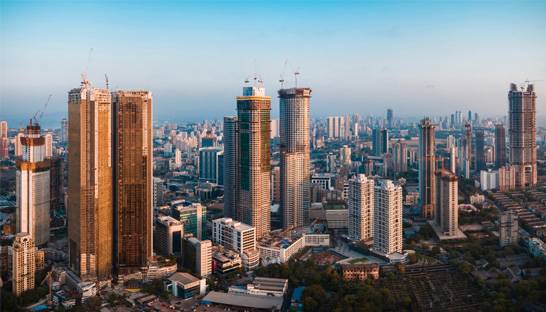Revolutionizing Property Management in Indian Real Estate, Innovative Strategies for Success in a Dynamic Market
Read latest blogs and articles from Housystan

The Information mentioned here was last updated on:
29/1/2026Revolutionizing Property Management in Indian Real Estate: Innovative Strategies for Success in a Dynamic Market
The Indian real estate sector is one of the most significant contributors to the country's economy, yet it faces evolving challenges and opportunities as the market dynamics shift. With the advancement of technology and changing consumer expectations, property management in India is ripe for a revolution. This transformation not only promises efficient operations but also enhances tenant relationships and boosts property value.
Understanding the Current Landscape
- Verified Tenants/Buyers
- Unlimited Property Listing
- Zero subscription/charges fee
The Indian real estate market is vast and diverse, encompassing everything from residential properties in bustling cities to commercial spaces in emerging urban centers. Within this complex ecosystem, property management plays a crucial role:
- Embracing Technological Advancements: Technology stands at the forefront of revolutionizing property management. Innovative tools such as AI and IoT offer real-time data analytics, predictive maintenance, and automated systems, which significantly enhance property management efficiency.
- Shifting Tenant Expectations: Modern tenants expect more than just a roof over their heads. They seek seamless digital interactions, transparent communication, and enhanced living experiences. Meeting these expectations is crucial for property managers looking to retain tenants and stay competitive.
Innovative Strategies for Success
To thrive in this dynamic market, property managers in India need to adopt innovative strategies. Here are some practical approaches for success:
1. Leveraging Smart Technology
Smart technology is transforming properties into efficient and attractive spaces. Here's how property managers can leverage these advancements:
- Smart Building Management Systems (BMS): Implementing smart BMS can optimize energy usage, enhance security, and ensure preventive maintenance, ultimately reducing costs and improving tenant satisfaction.
- IoT-Enabled Devices: These devices offer real-time monitoring of various systems (e.g., HVAC, lighting), allowing for immediate response and predictive maintenance. This leads to enhanced operational efficiency and reduced downtime.
2. Enhancing Tenant Communication
Clear, consistent, and efficient communication is key to tenant retention. Innovative strategies include:
- Digital Platforms: Use mobile apps or online portals to facilitate communications, handle maintenance requests, and share community updates, making interactions seamless and efficient.
- Personalized Experiences: Utilize data analytics to understand tenant preferences and provide personalized services, from tailored communication to exclusive offers and events.
3. Fostering Sustainable Practices
Sustainability is no longer a trend but a necessity. Sustainable property management practices can add value to properties:
- Green Building Certifications: Achieving certifications like LEED or GRIHA not only improves a building’s environmental footprint but also increases its market value and appeal to environmentally conscious tenants.
- Resource Optimization: Implement water-saving fixtures, energy-efficient lighting, and waste management systems to reduce operational costs while contributing to environmental conservation.
4. Streamlining Operations with PropTech
The rise of PropTech startups provides property managers with innovative tools to streamline operations:
- Automated Processes: Automation in accounting, leasing, and maintenance processes saves time and reduces human error, allowing property managers to focus on strategic tasks.
- Virtual & Augmented Reality: VR and AR tools can enhance property tours, offering potential tenants an immersive experience and facilitating faster decision-making.
Adapting to Regulatory Changes
Navigating the complex landscape of Indian real estate regulations requires vigilance and adaptability:
- Understanding RERA Compliance: Staying abreast of the Real Estate (Regulation and Development) Act, 2016, is crucial. Ensuring compliance not only avoids legal troubles but also enhances customer trust.
- State-Specific Regulations: Each Indian state may have its own set of rules. Property managers should be familiar with local regulations and work proactively with legal advisors to comply.
Emphasizing Data-Driven Decisions
Data is a powerful asset in property management:
- Market Analysis: Utilize data analytics to understand market trends, predict rental yields, and identify potential growth areas.
- Tenant Feedback: Regularly collect and analyze tenant feedback to identify areas for improvement and increase tenant satisfaction.
Promoting Community Engagement
Building a sense of community can significantly enhance tenant satisfaction:
- Organizing Events: Regular community events foster tenant interactions and create a sense of belonging, enhancing tenant satisfaction and retention rates.
- Social Media Engagement: Utilize social media platforms to communicate with tenants, share updates, and create a vibrant community presence.
Exploring Flexible Leasing Options
The growing demand for flexible living and working arrangements calls for adaptive leasing strategies:
- Co-Living Spaces: With urban migration rising, co-living spaces cater to millennials and young professionals seeking affordable, community-oriented living environments.
- Flexible Lease Terms: Offering short-term leases and flexible payment plans can attract a wider range of tenants, from digital nomads to international expatriates.
The seamless integration of these strategies can fundamentally transform property management in Indian real estate, creating a competitive edge in this dynamic market.
By adopting smart technology, enhancing tenant communication, fostering sustainability, utilizing PropTech, adapting to regulations, making data-driven decisions, promoting community engagement, and exploring flexible leasing options, property managers can drive efficiency, boost tenant satisfaction, and increase property value. Through continued innovation and adaptability, the future of Indian real estate property management holds promising potential for those ready to embrace change.